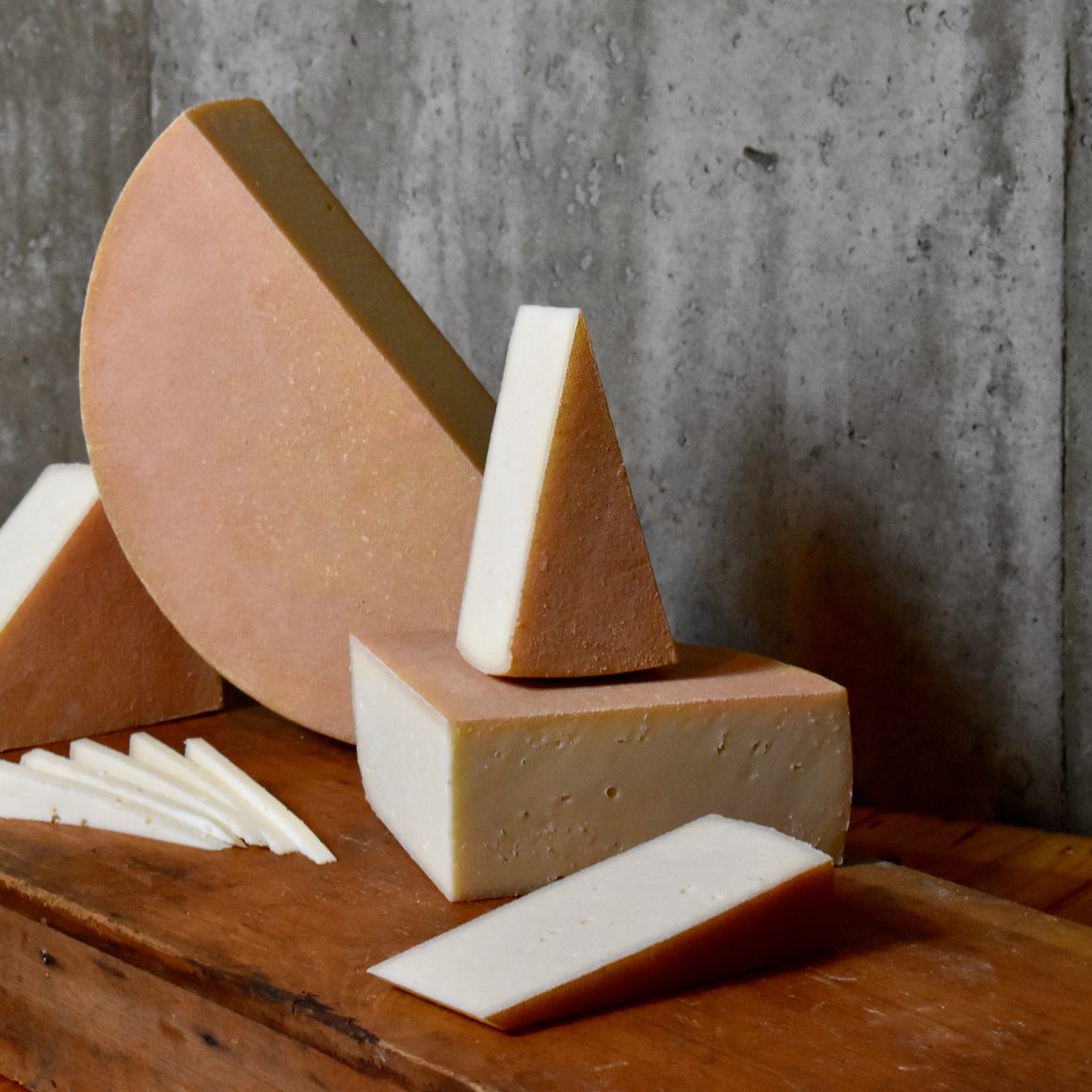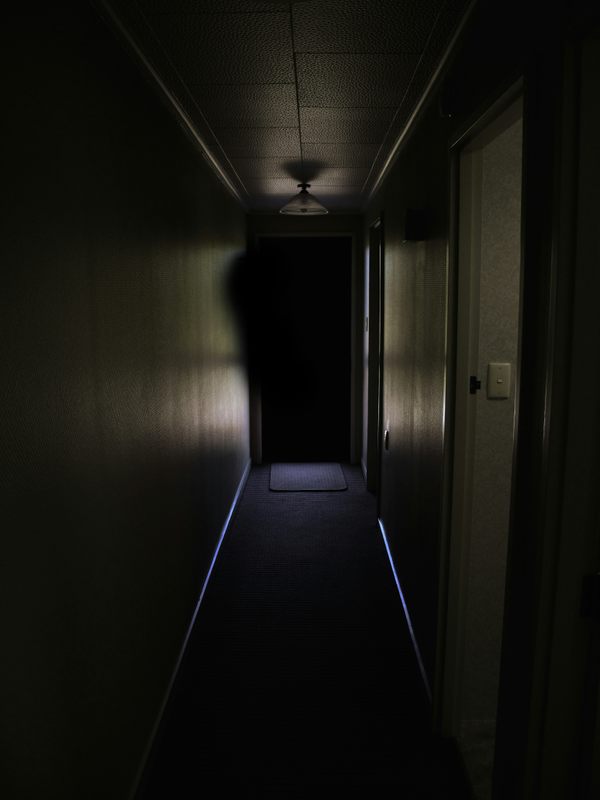
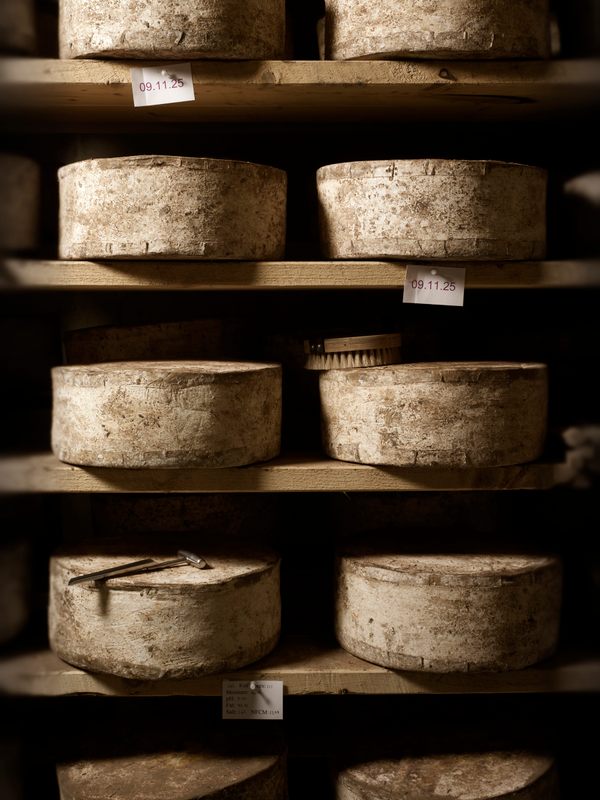
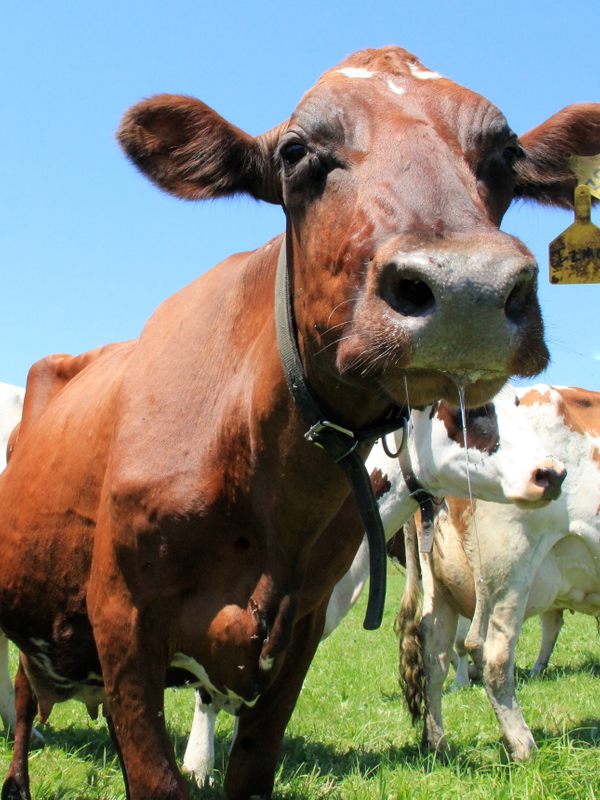
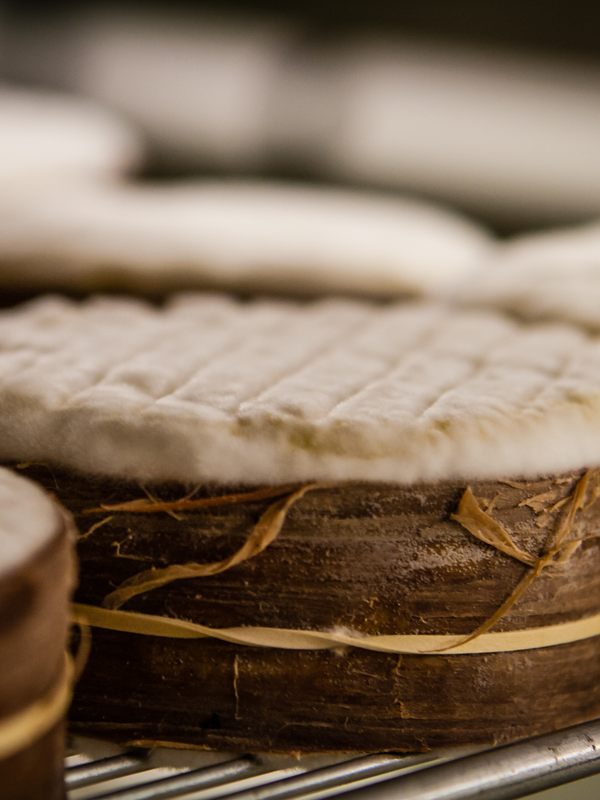
This course has already started! However, you can still join if you’d like to (and we hope you will!). Students enrolling after the course start date and time will have access to a recording of the first session (which will be emailed to participants within 72 hours) as well as the option to attend remaining sessions live. Please select the “Join Late” ticket type to enroll after the course has begun.
In this four-part lecture series, explore the world of artisanal cheese—delving into the cheesemaking process, visiting a ripening cellar, and honing your tasting vocabulary.
Course Description
What differentiates Gruyère from Gouda? What is it that makes some cheeses so fragrant, and why is that something we seek out? For many of us, cheese is ubiquitous, but connoisseurship can feel out of reach. In this four-part course, cheese sensory evaluator Zoe Brickley of Jasper Hill Farm will break down the world of artisanal cheese, beginning with the dairy cows behind it all. We’ll cover the tools and techniques of cheesemakers, look at the ripening process, and even take a behind-the-scenes tour of a ripening cellar. We’ll move through the smelling and tasting journey, exploring how visual cues, sensory descriptions, and production styles can inform our cheese tasting experience. Along the way, we’ll look at the connection between people, animals, the landscape, and the resulting “terroir.” By the end of our time together, you’ll not only have a deeper understanding of what goes into making cheese, but also the ability to deftly navigate a specialty cheese case, tasting menu, or conversation with a culinary professional.
Syllabus at a Glance
This course includes four total sessions, each lasting 1.5 hours on four consecutive Wednesday beginning June 21.
Session 1 (Wednesday, 6/21, 7–8:30 PM ET)| Grass Farming: Taking it back to the cows
A fussy French chef once told me, “your sauce is only as good as the wine you use to deglaze the pan.” Quality raw materials are key to fine cheesemaking, and the first ingredient is whatever you’re feeding the cow. It's hard to draw a straight line between the flavors of the grass and a finished wheel, but cheese is the sum total of many small decisions. In this session, we’ll talk about how we build great cheese from the soil up. Also, we’ll think long and hard about what it means to chew cud.
Session 2 (Wednesday, 6/28, 7–8:30 PM ET)| Alchemy of the Vat: Cheesemaking techniques
An astounding diversity of cheeses share a remarkably simple four-ingredient list: milk, salt, rennet, and cultures. So the difference between Brie and Parm largely comes from different cheesemaking tools and techniques. We’ll take a live look at Jasper Hill’s newly renovated creamery while we explain how these raw materials are transformed with different goals for texture and flavor in mind. You could try this at home, but it probably won’t go well.
Session 3 (Wednesday, 7/5, 7–8:30 PM ET)| Into the Caves: History & microbiology of popular styles
Cave ripening amplifies and expresses a cheese’s character by cultivating a community of microorganisms on the surface which metabolize curd components into volatile aromas and delectable textures. We’ll take a tour of a facility designed for just that purpose–Jasper Hill’s seven climate-controlled, underground ripening cellars. Along the way, we’ll discuss the long history of mold growing on food and people eating it anyway.
By ordering Jasper Hill’s associated tasting kit, you’ll be able to taste a soft cheese at two different stages of ripeness, and a hard cheese at the same age but two different flavor profiles.
Session 4 (Wednesday, 7/12, 7–8:30 PM ET)| What’s that Smell?: Flavor evaluation and pairing workshop
The key to selecting cheese for the perfect cheese board starts with the ability to describe what you’re looking for. Now that we know all about different styles of cheese and how they’re made, we’ll introduce a lexicon of sensory evaluation as we taste through a flight. We’ll explain the difference between taste and flavor, arm you with more texture descriptors than ‘creamy,’ and try to achieve a next level cheese pairing - technically speaking of course…
This session will heavily reference an optional tasting kit shipped directly from Jasper Hill, but participants can taste along from a shopping list of locally available options.
Pricing Options
This course is available at three ticket prices. This tiered pricing model is designed to increase access for a wider range of students as well as to support our instructors. In addition to tiered tickets, we offer a limited number of no-pay spots for students who would not otherwise be able to take this course. No-pay spots are selected via a randomized drawing two weeks before each section begins. For more information and to apply for a no-pay spot, please click here. To learn more about our pricing model and randomized selection process for no-pay spots, please visit our FAQ page.
Between Sessions
Students interested in delving more deeply into course material outside of class will have access to optional readings and resources.
Materials
Students are encouraged to purchase some cheese! (We'll be tasting a few different kinds in sessions three and four.) Jasper Hill Farm has put together a customized cheese kit ($99), which ships directly to students and includes all cheeses covered in class.
Please note: At this time, we're only able to ship the customized cheese kit to students living in the U.S.
Alternatively, students can purchase any number of these cheeses locally or online. We've included a list of similar cheeses below.
- Brie or Camembert: Single cream preferred (American producer a plus)
- Raclette or Fontina: A semi-firm cheese with natural, rosy-orange rind
- Taleggio or Epoisses: Any soft, pudgy cheese with a rosy-orange natural rind
- Bandaged Cheddar or Cave Aged Cheddar: A natural rind is key
- Natural Rind Blue: Like Stilton or Fourme d'Ambert
Community Guidelines for Students
Please take a moment to review our community guidelines for students, which aim to share our classroom ethos and help set the stage for the best possible learning experience.
Atlas Obscura Online Courses
Atlas Obscura Courses offer opportunities for participants to emerge with new skills, knowledge, connections, and perspectives through multi-session classes designed and taught by expert instructors. To learn more about our current course offerings, please visit www.atlasobscura.com/online-courses. For answers to commonly asked questions, check out our FAQ page here.
Founded in 2009, Atlas Obscura created the definitive community-driven guide to incredible places across the planet and is now an award-winning company that shares the world’s hidden wonders in person and online.
Once registered, you’ll receive a confirmation email from Eventbrite that will provide access to each class meeting. Please save the confirmation email as you’ll use it to access all sessions of your course via Zoom.


Zoe Brickley began her cheese career as a cheesemonger and cave manager at Murray’s Cheese in NYC. In 2009, Zoe joined the team at Jasper Hill Farm where she led foundational sales & marketing efforts for the growing company. Currently, she directs their communications, e-commerce, and creative works. Zoe has presented hundreds of education hours for many organizations and is an American Cheese Society Certified Cheese Professional & Sensory Evaluator.
This lecture series is designed so students can participate live or watch a recording of each session, after it airs, at a time that is convenient for them. Sessions will take place live over Zoom, with dedicated Q&A segments for students to ask questions via video or chat. Within 72 hours after each session meets, students will receive access to a recording of the live session, which they can watch for up to two weeks after the course concludes.
Instructors may use Google Classroom to communicate with students outside of class. While students aren’t required to use Google Classroom, instructors may use this platform to post resources, discussion questions, or assignments. This platform also offers a space for students to connect with one another about course material between sessions.
We provide closed captioning for all of our courses and can share transcripts upon request. Please reach out to us at experiences@atlasobscura.com if you have any questions, requests, or accessibility needs.






